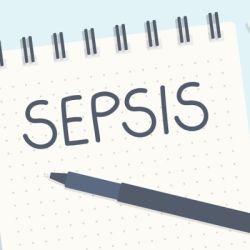According to the Surviving Sepsis Campaign (SSC), sepsis is a life-threatening organ dysfunction caused by a dysregulated host response to infection. The organ dysfunction may be transitory in some patients, but complications can always occur in others. For example, a patient who has undergone cardiac surgery can present postoperative cardiac dysfunction, respiratory failure, renal and neurological dysfunction, bleeding disorders, altered liver function and systemic inflammatory response as multi-organ failure. Patient outcomes can be improved with the early identification and appropriate management of the inflammatory response.
Pancreatic Stone Protein (PSP) is a protein produced during the early stages of sepsis. Researchers evaluated whether PSP can predict perioperative infection in cardiac surgery in a case series presented at the 76th SIAARTI National Congress. The case series was conducted in an adult cardiothoracic surgery Intensive Care Unit (ICU) at the Teaching Hospital “Policlinico di Bari”. At the time of admission, baseline blood samples were taken from each patient for analysis of PSP, CRP, WBC and other preoperative routine parameters. A total of five patients scheduled for myocardial revascularisation were included in the analysis. All patients were males with a mean age of 66.8 years, two or more risk factors, 6 ± 5,7mean days of length of stay and favourable outcome. Of the five patients, two returned to the ICU.
Surgical trauma, cardiopulmonary bypass, ischaemia reperfusion injury and release of inflammatory factors are known to induce a complex inflammatory response. It is believed that the early identification and early treatment of sepsis can be effectively made by using a good biomarker. In this case series, researchers confirmed that PSP could be useful in predicting postoperative inflammatory reaction. This novel marker showed high levels (> 200 ng/ml) in the two patients that returned to the ICU and in two patients that developed inflammatory response after cardiac surgery or for risk factors (end-stage renal disease undergoing dialysis).
However, more research is still needed to determine the sensitivity, specificity and timing of this biomarker. Nevertheless, these findings suggest that PSP has the potential to become an early marker for postoperative sepsis.
Click here for more Sepsis news.
Sources: Abstract from the 76th SIAARTI National Congress; Critical Care



















